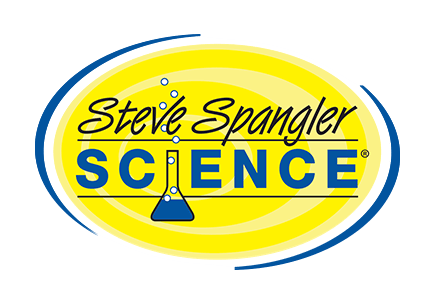Stop Squeezing Science in Elementary Education
Fourth Graders in the United States Show No Gain in Science in 10 Years
Science instruction must be an important and integral subject throughout a student’s entire education. The subject is doubled up with social studies or pushed into more of an extra-curricular or special subject. Many elementary educators are squeezing science into their lesson plan. Students are not getting the science education and foundations they need until much later in their educational careers.
This warning comes from Dr. Joanne Vasquez, a member of the National Science Board, the oversight body for the National Science Foundation in her article in the Arizona Republic, “Bring Back Elementary Science Education!” She has taught science at all grade levels, was a science supervisor, and for 10 years was an associate professor of Science Education at Arizona State University.
The recently released Trends in International Mathematics and Science Study 2003—an international student assessment conducted in 15 countries and released on December 14—tells us that American fourth-graders are doing no better in science than they did in 1995. Ten years later, and still no progress has been made with our youngest learners. But why should we care if six-year olds take science or not? The answer is simple: because future innovations in science, technology, engineering, defense, national security, and a whole lot more could be at stake.
From 1975 to 1999, the United States dropped from third to 14th in the number of global science and engineering baccalaureates produced. We need to increase the interest of college-bound students in STEM careers not by looking at the end of the K-12 pipeline when students head off to college, but by carefully evaluating the value of science education and how we teach it at the start of a student’s K-12 years.
Science instruction has come to a dismal halt or been severely curtailed in far too many elementary classrooms here in Arizona and across the United States. While we do not argue that these subjects are also important, science, like all subjects, requires a developmental building of conceptual understanding that must start in kindergarten. Yet many students reach the intermediate and middle grades with little or no science instruction, and if they receive any, it happened when the teacher could “squeeze” it in.
To effectively improve elementary science, it has to be taught at the elementary level. Schools and administrators need to value the science education they offer, and they must provide quality professional development, mentoring, and resources to our elementary teachers. This will be vital if as a nation we want to truly see students achieve in science.
– Dr. Joanne Vasquez
The theme for teacher training workshops 20 years ago was, “Science is Fun!”
Dozens of professional development workshops and institutes did everything possible to get teachers turned on to teaching science. I refer to this as the “arts & crafts” period of science education training.
A survey of principals in the Cherry Creek School District in Colorado revealed that students were having fun doing lots of hands-on activities, but the translation from ‘real fun’ to ‘real learning’ didn’t happen in most instances. Hands-on learning in conjunction with formal instruction about what the students observe is needed.
It’s been my mantra for years… “Just because kids are doing a hands-on activity doesn’t mean they’re learning.”
As teachers, we need to learn how to effectively use inquiry-based activities to teach our students how to better use the scientific method and to stimulate their problem-solving skills. Professional development for teachers is a must in educating them on how to go beyond the “cool!” and develop the learning.




I agree with Dr. Vasquez on all points made. I believe it’s time for school districts to curtail a lot of the unnecessary testing, (CSAP) for example here in Colorado!
It’s taking quality time away from the classroom’s and teachers, while hurting the students at the same time. That’s why our Indian and Asian counterparts are exceeding, while our students are floundering!
I teach K-5 science lab at my school. Everyone rotates through science lab just like they do art, music and PE. Our PTA and county provides tremendous resources to purchase science materials. My Principal encourages hands-on exploration.
All this to say…It depends on how your community views science. The lab is now in its fifth year. Parents and students love science. This also encourages the classroom teachers to ask for more ideas for their classroom instruction. Sometimes elementary teachers avoid teaching hands-on science due to lack of materials. The kids want their hands on the experiment, they don’t want to always watch a demonstration or read from a book.
Bottom line. Some schools are making progress in science.
Felicia — Sounds like your school is the example that we all should be following. I agree that one of the secrets is community involvement. If the parents support science, love science and demand more science, teachers have won half of the battle. At the beginning of each school year, our PTO askes each teacher what materials he or she could use to be a more effective teacher. While it doesn’t solve everyone’s needs, a few hundred dollars in the form of teacher grants go along way with our staff.
I agree with Dr. Vasquez’s statement, even though I am responding almost three years later:). It is critical that science education be brought back to elementary schools. I teach high school chemistry and physical science and live the repercussion of lack of strong science foundation every day.
I am not discouraged though; it’s a challenge that I live up to because I know my high school students will still learn the concepts. It’s unfortunate that there is now a push for elementary science education now that it is linked to hgih stakes testing.